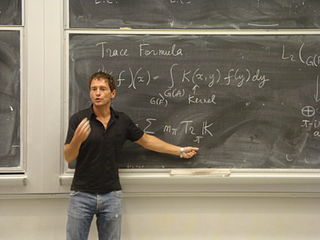A Quote by Benjamin Tucker
The two principles referred to are Authority and Liberty, and the names of the two schools of Socialistic thought which fully and unreservedly represent one or the other of them are, respectively, State Socialism and Anarchism. Whoso knows what these two schools want and how they propose to get it understands the Socialistic movement. For, just as it has been said that there is no half-way house between Rome and Reason, so it may be said that there is no half-way house between State Socialism and Anarchism.
Related Quotes
The term anarchism has become associated with two phenomena with which real anarchist don't want to associate themselves with. One is violence, and the other is disorder or chaos. The popular conception of anarchism is on the one hand bomb-throwing and terrorism, and on the other hand no rules, no regulations, no discipline, everybody does what they want, confusion, etc. That is why there is a reluctance to use the term anarchism.
Anarchism is for liberty, and neither for nor against anything else. Anarchy is the mother of co-operation, yes, just as liberty is the mother of order; but, as a matter of definition, liberty is not order nor is Anarchism co-operation. I define Anarchism as the belief in the greatest amount of liberty compatible with equality of liberty; or, in other words, as the belief in every liberty except the liberty to invade.
Socialism is the preparation for that higher Anarchism; painfully, laboriously we mean to destroy false ideas of property and self, eliminate unjust laws and poisonous and hateful suggestions and prejudices, create a system of social right-dealing and a tradition of right-feeling and action. Socialism is the schoolroom of true and noble Anarchism, wherein by training and restraint we shall make free men.
The very reason why we object to state ownership, that it puts a stop to individual initiative and to the healthy development of personal responsibility, is the reason why we object to an unsupervised, unchecked monopolistic control in private hands. We urge control and supervision by the nation as an antidote to the movement for state socialism. Those who advocate total lack of regulation, those who advocate lawlessness in the business world, themselves give the strongest impulse to what I believe would be the deadening movement toward unadulterated state socialism.
I believe in the platform of the Libertarian party, which is different from that of the other two parties and I believe that it would be good for the country if the Libertarians were - had a seat at the table to speak truth to power of the other two parties, which now have this monopoly in Washington. Having said that, I'm not taking back anything I said about the massive difference between the two establishment party candidates.
The interaction between math and physics is a two-way process, with each of the two subjects drawing from and inspiring the other. At different times, one of them may take the lead in developing a particular idea, only to yield to the other subject as focus shifts. But altogether, the two interact in a virtuous circle of mutual influence.
I think the other side of this is in this balance between the social state and the punishing state, remember, the social state has been decimated. And the question becomes, how is finance capital, how does the 1 percent now resort to governing? And they govern basically through a form of lawlessness and what I call the punishing state, in which we've had a punishment creep, and now it moves from the prison to almost every institution in society, from airports to schools to social services.
Odonianism is anarchism. Not the bomb-in-the-pocket stuff, which is terrorism, whatever name it tries to dignify itself with, not the social-Darwinist economic 'libertarianism' of the far right; but anarchism, as prefigured in early Taoist thought, and expounded by Shelley and Kropotkin, Goldman and Goodman. Anarchism's principal target is the authoritarian State (capitalist or socialist); its principle moral-practical theme is cooperation (solidarity, mutual aid). It is the most idealistic, and to me the most interesting, of all political theories.


































